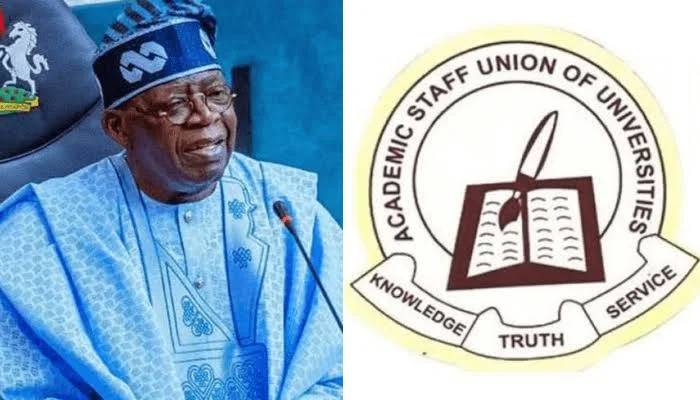President Bola Tinubu has issued a direct mandate to the Minister of Education, Olatunji Alausa: swiftly resolve the ongoing industrial dispute with the Academic Staff Union of Universities (ASUU). The President stressed that he wants to avoid any further strikes that would disrupt academic activities in Nigerian universities.
Minister Alausa spoke to the media at the Aso Rock Villa on Tuesday after his meeting with the President. He claimed the government has addressed “literally all” of ASUU’s core demands. Therefore, his visit to the President was primarily to seek further executive concessions to finalize an agreement.
Minister Dismisses Recent Strike Action
The Education Minister described ASUU’s most recent six-day warning strike as “not really needed.” He noted that the administration had already met most of the union’s requirements.
“The President has mandated us that he doesn’t want ASUU to go on strike, and we’re doing everything humanly possible to ensure that our students stay in school. The last strike they went on for about six days was not really needed,” Alausa stated.
He confirmed that negotiations have resumed. His presence at the Presidency was both to report on the progress of the talks and “to extract more concessions from Mr. President” for education and human capital development.
ASUU’s Long-Standing Demands
ASUU, the principal union for university lecturers, has maintained a long-running dispute with the Federal Government. The union’s demands are centered on several core issues that affect tertiary education:
- Funding Shortfalls: Lack of adequate funding for universities.
- Salary Concerns: Unpaid salary arrears and the status of the renegotiated 2009 agreement.
- Payment Systems: Disagreements over adopting the University Transparency and Accountability Solution (UTAS) in place of the IPPIS payroll system.
- Infrastructure: The dilapidated state of university facilities.
Strikes launched by ASUU over the years have severely impacted the academic calendar. This has delayed graduations and undermined the global competitiveness of Nigerian universities. ASUU initiated its two-week warning strike in October after accusing the government of failing to honor previous demands.
New Strategy for Union Negotiation
Minister Alausa revealed a new government approach for dealing with tertiary staff unions. The Tinubu administration has consolidated negotiations under a single committee, led by Yayale Ahmed.
This new body now deals with all tertiary staff unions, including ASUU, the Academic Staff Union of Polytechnics, and the Colleges of Education Staff Union.
This centralized approach replaces the previous system, where each union had its own separate negotiating committee.
“What we’ve done now is to expand one single committee,” Alausa explained. “They’re dealing with both academic and non-academic unions…There is no ultimatum. Everything is calm, and they understand this is a listening government.”
Promoting Transparency with New Portal
The Minister also highlighted a new initiative aimed at fiscal transparency. The government has launched a Federal Tertiary Institution Governance and Transparency Portal. This portal publishes vital data, including:
- Student enrollment figures.
- Budget allocations (covering personnel, capital, and recurrent expenditures).
- Intervention funds, grants, and endowments received by institutions.
Alausa noted that this portal currently covers all federal universities, polytechnics, and colleges of education.
It is expected to be expanded to include state and private institutions in the future. “We are running an evidence-based government…If you don’t have data, it’s like you’re flying blind,” he concluded.
ALSO READ: Tinubu Orders Final Review of Ambassador List Amid Diplomatic Urgency






